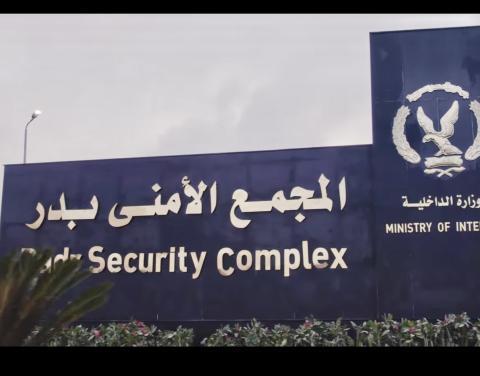
The families of political prisoners in the Badr Prison, north-east of Cairo, have called for the right to visit their loved ones and for the lifting of the restrictions imposed on the prisoners.
After receiving copies of the families' demands, Alkarama wrote to several UN human rights special procedures asking them to intervene with the Egyptian authorities to grant the detainees their basic rights under international human rights law. Alkarama also asked the experts to warn the Egyptian authorities against any kind of escalatory reprisals aimed at suppressing the demands of the detainees and silencing their voices.
According to the testimonies received, the detention conditions are still very poor and the atmosphere is escalating in Badr prison. The situation has worsened amid the ongoing crisis between the Interior Ministry and Badr detainees, who have been demanding that family visits be allowed.
The families of political prisoners reported that “the period from 23 February to 4 March saw an escalation of incidents as cases of daily suicide attempts increased, ranging from artery slitting to hanging attempts and ingesting large amounts of drugs”.
Along with other human rights organisations, Alkarama launched a campaign to highlight the suffering of the detainees in the infamous Badr Complex prisons. The campaign also expressed the organisation’s solidarity with the detainees in light of the severe violations committed against them by the Egyptian authorities, in flagrant violation of the Egyptian constitution and international law.
Several families reported that the prison administration, led by National Security Officer Yahya Zakaria, suspended negotiations with the prisoners’ representatives and took several punitive measures, including discontinuing regular medication for cardiac and diabetic patients and blocking entry of medicines sent by relatives from abroad. The administration also reduced the amount of food provided, leading to starvation inside the prison, to force the prisoners to comply with the administration and to postpone indefinitely requests for visits.
Detainees in the Badr Prison Complex have complained about the suspension of medical services while being threatened with excessive force, something Alkarama is concerned the authorities could do.
Faced with such harsh conditions, the detainees started to intensify their protests by hanging banners on the doors demanding their right to visitation. Some of them started to refuse food in order to protest against what they consider a “slow killing policy” imposed on them by the Egyptian authorities.
Detainees demanded the opening of family visits and the formation of an international fact-finding committee. They called on the media to publish and expose the Egyptian regime’s practices against them. Furthermore, the detainees are calling on the international community to stop supporting the Egyptian government, whose policies violate human rights in contradiction with all international standards and conventions signed by Egypt.
Alkarama’s Advocacy
In recent years, Alkarama has submitted numerous complaints to the UN Special Procedures on behalf of victims of violations in Egypt. For instance, Alkarama filed a complaint to the Working Group on Arbitrary Detention on 9 October 2020 on the case of Dr Hossam Abu El-Ezz, the former governor of the city of Qalyubia. Detained in Badr prison, he is being arbitrarily deprived of his liberty since September 2013.
Dr Abou El Ezz has been held in solitary confinement and denied access to his family, lawyer and medical care. The particularly harsh conditions of his detention amount to a form of torture for him and his family, and directly endanger his life.
Human rights violations under the pretext of “counterterrorism”
In its latest annual report, Alkarama expressed its deep concern at the continued use of arbitrary detention, enforced disappearances, torture and other repressive measures to persecute all forms of political opposition and human rights activism in Egypt.
In the same context, Alkarama has repeatedly called for an end to the Egyptian authorities’ violations against political prisoners in the Badr Complex prison.
Alkarama affirmed that impunity for the crimes committed by the Egyptian military-led government over the past years will only encourage the perpetrators of human rights violations in the country and further violations tantamount to crimes against humanity. It reiterated the need to put an end to policies that turn a blind eye to human rights violations in the context of counter-terrorism measures.
Lastly, Alkarama recalled that such policies not only represent a major setback for the principle of justice and the universality of human rights, but also have disastrous consequences for international efforts to combat terrorism and its root causes.
